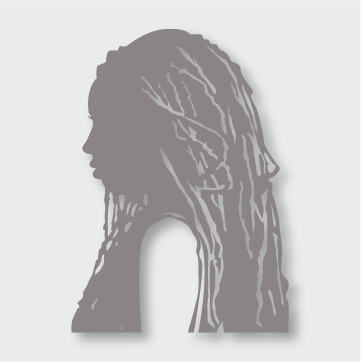[media-credit id=424 align=”alignnone” width=”361″] [/media-credit]
[/media-credit]
Nappy, kinky, not white. As a Black woman, my hair is judged and scrutinized because it does not fit the whitewashed mold of beauty in America.
I have worn my hair in braids because it’s convenient, protects my hair’s health and is an alternative to aggressively straightening my already thinning hair. But I am mostly seen wearing my hair laid straight with obedience in a weave, because I have been conditioned to think my hair’s natural texture is unattractive. It’s the stares, questions and comments that stem from a mix of ignorance and curiosity that have led me to avoid wearing my hair natural.
While microaggressions like unwanted hair touching and compliments that are borderline racist leave me feeling categorized, it’s not nearly as appalling as the blatant racial discrimination that took place in a recent court ruling in Alabama.
In September, the 11th U.S. Circuit Court of Appeals ruled against the lawsuit filed by the Equal Employment Opportunity Commission, ruling that it is now perfectly legal to ban dreadlocks in the workplace and to fire employees because of their dreadlocks. But what they fail to understand is that hairstyle plays no part in determining work ethics and capability.
In 2010, Chastity Jones applied for a position at Catastrophe Management Solutions, and was hired under one condition. Jones would have to cut off her dreadlocks because, according to Jeannie Wilson, the human resources manager at CMS, locs tend to get “messy” and did not comply with the company’s grooming policies.
Jones refused to cut her dreadlocks and the company terminated her job offer.
The EEOC filed a lawsuit against CMS, claiming their policy was racially discriminatory because “dreadlocks are culturally associated with people of African descent.”
Natural hair styles have been stigmatized and deemed as “unprofessional” or “distracting,” but it never occurred to me that our judicial system could go as far as to rule a ban on dreadlocks in the workplace. The 3-0 decision is yet another form of discrimination against Black people in America. Time after time White America forces us to shun our culture and conform to their approved brand of beauty.
In 2014, the Army updated AR 670-1, also known as their grooming policy, banning hairstyles like cornrows, braids, twists and dreadlocks, claiming they are “faddish” and “exaggerated.”
This essentially prohibited about 26,000 Black women from wearing their hair naturally.
The Army’s new policy failed to take into consideration that most women in the military don’t have the luxury nor the time to go to a salon and chemically process their hair every 4 to 6 weeks. The policy also failed to realize that Black people have different hair textures and therefore we can not all style our hair the same way White women would.
While buns are accepted, many Black women need to put their hair in twists or braids before being able to achieve that hairstyle.
Similar cases have occurred with companies such as Six Flags, Air France and FedEx.
Federal law bans racial discrimination in the workplace, but rulings like these frame the natural physical characteristics of Black people as unacceptable.
Over the 150 years since slavery, most Black women have internalized that straight hair —which is achieved by applying ludicrous amounts of heat to your hair or with chemical processes — is the appropriate look, and that our natural kinky hair that grows up and out is unacceptable and unattractive.
It wasn’t until the emergence of the Black Power movement that natural hair and the afro became a celebrated style among Black women in America. The phrase “Black is beautiful” was coined to encourage Black women to grow their hair in Afros to stand in solidarity against society’s White beauty standards.
Despite past efforts to empower Black women, Whiteness is still the standard of beauty in America and continues to place a strain on Black hair.
Why is White America’s response to Blackness to suppress the beauty in being Black and socialize us to not be proud of embracing our cultural identity? Should we be conforming to fit corporate standards or should we be taking steps toward enacting change?
We are being discriminated against because of how our hair grows from its roots and we have as much control over how our natural hair looks as we have choosing who our parents are.
The way a Black woman decides to wear her hair does not impact her ability to do her job. Corporate America does not have the right to enforce a grooming policy that marginalizes Black women in America for the strands that grow on our heads. It is insulting to our intelligence to see us as nothing more than the texture of our hair.
As Black people who live in a country where everyone is socialized to comply to White beauty standards, we are forced to make conscious choices everyday about the way we choose to presents ourselves for fear of how it might be misconstrued. As Black people in America we are constantly leading double lives for fear that we might be “too Black” to be accepted. The legal precedent set by the most recent legislation against Black hairstyles reminds America once again that Black beauty is illegal.








Jan • Oct 17, 2016 at 1:52 pm
Verry goood article . Its unbelievable this is stil happening in the USA. In europe noboddy has problems about the way “all” ” woman ” style or weir their hair